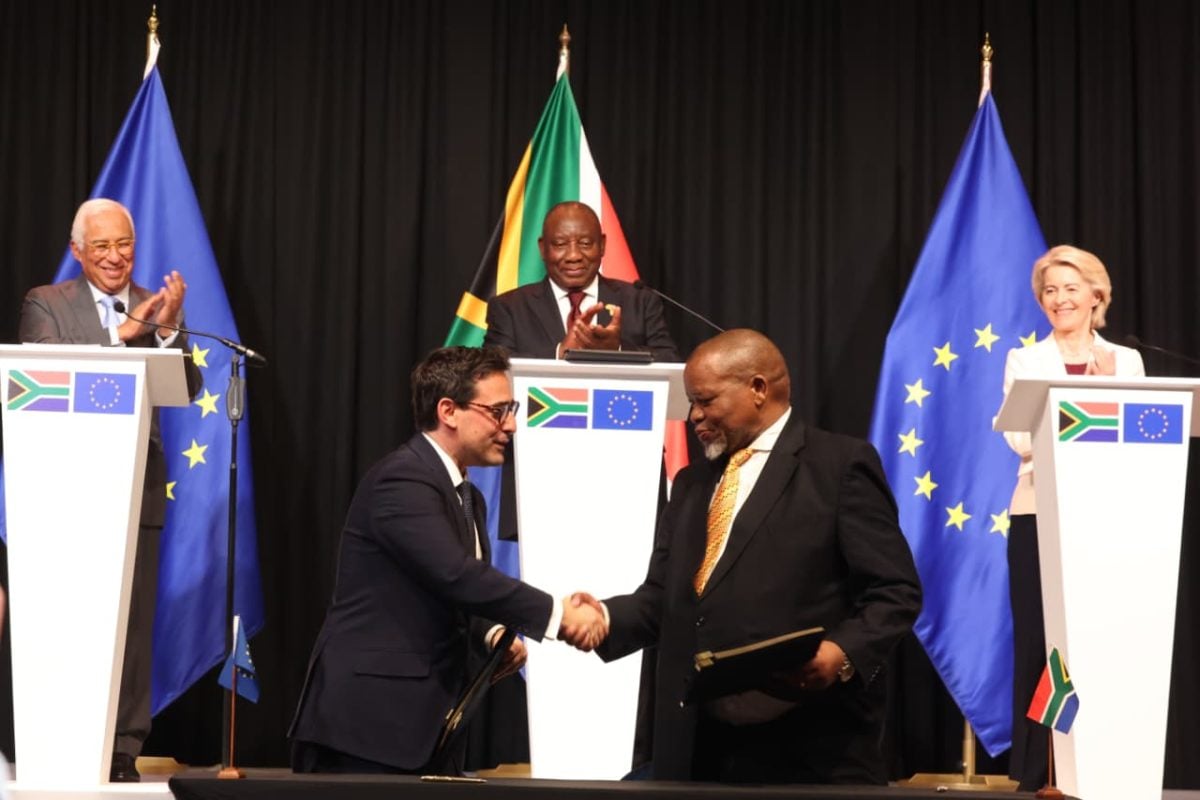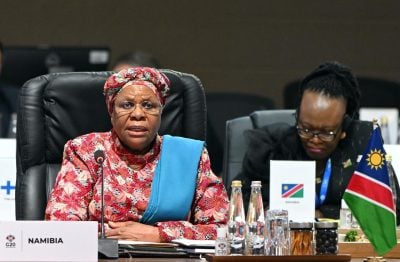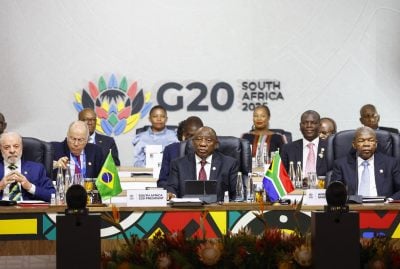This year has been a litmus test for Europe’s relations with the Global South, a region that accounts for 88% of the world’s population. The US, Europe’s longtime default partner in international development, has dialled down its engagement with the Global South under President Donald Trump, whose recent boycott of the G20 heads of state summit in South Africa sent a clear message about his foreign policy priorities. Yet Washington’s absence did not derail the agenda as many analysts had divined. South Africa was still able to press forward with a declaration that placed the concerns of developing economies at the centre.
The declaration, backed emphatically by European leaders, opens with a call for greater support to poorer nations confronting climate change and other disasters. The 30-page document goes on to reflect other pressing concerns of less economically developed countries, including taking action to ensure debt sustainability for low-income countries; mobilising finance for just energy transitions; and harnessing critical minerals for inclusive growth and sustainable development.
From the outset of its presidency, Pretoria defined its priorities around equality, inclusion, sustainability, and cooperation for development – concerns widely shared by other nations in the global south as well as with the European Union (EU).
Analysts commended the robust turnout from Western nations, including from EU members. Their active participation was framed as both a show of solidarity and a decisive factor in building consensus around the summit’s outcomes.
“I would say that Western country presence in Africa is extremely important, including to address the credibility gap that was built up following the pandemic with issues related to vaccine and treatment access and supply chain disruptions that affected African countries in especially significant ways,” said Julián Ventura, a non-resident fellow at the Chicago Council on Global Affairs.
“Having them on the ground and engaging with African leaders, with the South African government, sends a very important message of inclusion,” he notes. “Summits provide opportunities for face-to-face meetings between leaders. These contacts are often more practical and more relevant than the official goings-on in the conference room.”
EU and South Africa expand cooperation
A day before the G20 summit kicked off, the EU and South Africa signed a landmark Clean Trade and Investment Partnership, along with a new cooperation agreement on minerals and metals value chains. The total investment package is estimated at €12bn ($13.8bn).
“This new, dynamic form of trade agreement brings together competitiveness and climate action. We are stepping up mutually beneficial cooperation in the clean economy and on critical raw materials. And we are hosting the final pledging event of our ‘Scaling Up Renewables for Africa’ campaign to help power a clean future for the continent,” said Ursula von der Leyen, president of the European Commission, during the signing ceremony with South Africa’s president Cyril Ramaphosa.
The EU’s new deal with South Africa is part of Global Gateway, the EU’s strategy to boost smart, clean and secure connections in digital, energy and transport sectors, and to strengthen health, education and research systems across the world. The strategy aims to mobilise up to €300bn ($347bn) in investments.
This new partnership is designed to reinforce the EU’s role as a partner of choice for countries pursuing a clean transition. For Europe, it promises diversified alliances, fresh investment opportunities for its companies, and more secure access to critical raw materials. For nations like South Africa that have signed up, the agreement is expected to drive sustainable industrial growth, create local jobs, and advance broader decarbonisation efforts.
Sustaining the momentum
Following the G20 Summit in South Africa, both African and European leaders headed to Luanda, Angola for the seventh EU-African Union Summit, which took place from 24-25 November – a move that experts say will help sustain momentum that came out of the G20.
Indeed, the EU–AU Summit amplified Africa’s priorities—debt relief, climate resilience, and minerals cooperation—while positioning Europe as a strategic partner for the Global South at a time of increasing geopolitical fragmentation.
“The AU (African Union) has become far more central to Europe’s economic and geopolitical calculations, not least because of soaring demand for African critical minerals and EU countries’ growing insecurity and migration concerns, write Tighisti Amare, Director of the Africa Programme at Chatham house, and Grégoire Roos, the thinktank’s Director, Europe and Russia and Eurasia Programmes.
“Europe, in turn, remains a vital partner for Africa. It is the largest market for African exports and a leading source of investment, development finance and technology. The EU is also a key diplomatic ally in global forums where African governments seek reforms on debt, climate finance and global governance,” they add.
Key European institutions like the European Investment Bank (EIB) have taken advantage of the increase in Africa-focused summitry to signal their increased commitment to the continent.
“In 2024, Africa received about 40% of our total investment beyond the European Union, making it the biggest beneficiary of this category of EIB financing – a total of €3.1bn of new investment.,” notes Ambroise Fayolle, EIB Vice-President.
Much of the EIB’s support has been in climate adaptation – a critical priority for African countries. “In Africa, we see how much the cost and impact of extreme weather events and disasters is rising. This is why accelerating investment in prevention and adaptation is so important: every euro we invest in these two areas saves five to seven euros in damage repair, reconstruction and losses,” Fayolle said.
“In the second phase of our Climate Bank Roadmap, we have decided to double our financing for adaptation to climate change to €30bn by 2030, focusing on high priority sectors such as agriculture, water, cities and vulnerable regions and communities,” he added.
Avoiding past mistakes
But for the EU to win over Africa and the global south, capital alone will not suffice. What is required is an approach built on open engagement, equal partnership, co‑creation of solutions, and trust. Historically, this has not always been the case. Europe’s colonial legacy and post‑colonial paternalism have often undermined genuine collaboration. The message from African leaders is clear: the continent does not need a saviour, but partners who are willing to align with its ambitions and respect its agency.
“To build genuine partnerships, the EU must pursue pathways co-developed with partners that respond to local needs and engage on equal terms. Moving away from approaches rooted in normative superiority is vital to counter criticisms of paternalism. In many parts of the Global South, memories of colonialism remain raw, and these nations are wary of hegemons with a ‘civilising’ purpose,” says Jaibal Naduvath, vice president and senior fellow at the Observer Research Foundation.
“The Global South is now an arena of active choice. These nations recognise their central role in the global economic architecture—whether in securing supply chains or ensuring food security—and are prepared to leverage it. Their growing economic weight and demographic dividend mean that all pathways to global influence run through them. Any prospective partner must approach them with this shift in mindset,” Naduvath adds.

 Sign in with Google
Sign in with Google 



